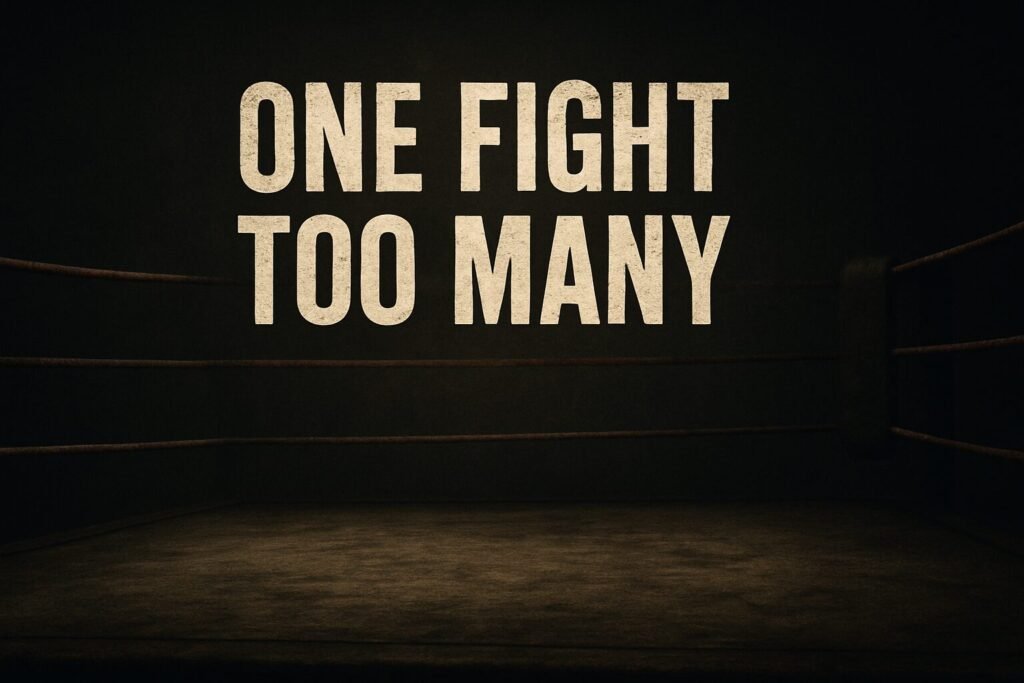Derek Chisora is planning his 50th professional bout as his farewell. But what’s he really fighting for — legacy, pride, or money?
I’ll be honest: I’ve never been the biggest fan of Derek Chisora. The antics, the press conference stunts, the in-ring trash talk — they’ve often felt like theatre designed to distract from what was happening between the ropes. But even with that said, there’s no denying that Chisora has been a long-serving figure in British boxing. He’s fought everyone, from domestic rivals to heavyweight champions, and he’s always made it entertaining.
The problem now is this: at nearly 50 fights in, what is he fighting for anymore?
The Boxer Retirement Threshold
Every fighter faces that moment — the boxer retirement threshold — where the question isn’t whether they can still lace up the gloves, but whether they should.
Chisora once had a purpose. When he was in the title picture, he was a legitimate contender. Even later, as a gatekeeper, he gave younger prospects a tough test before they moved on to European or world level. That role still made sense.
But now? He’s not in that picture. He’s not even a journeyman in the traditional sense, because no upcoming contender with serious ambitions is going to want to risk their momentum fighting him. So who really needs him?
Pride vs Legacy
The harsh reality is that “one more fight” rarely does a boxer’s legacy any favours. It’s easy to think about going out on your own terms, but boxing is littered with examples of fighters who went one step too far.
I would have far more respect if Chisora turned around now and said: “That’s it, I’m done. Thanks for the memories.” Because then he’d be remembered as the bloke who gave it his all, who entertained, who fought the best. Instead, by dragging it out, he risks being remembered as the fighter who went on too long.
And legacy matters. No one talks about Muhammad Ali’s last fights with fondness. Nobody looks back at Roy Jones Jr’s run in his forties as career-defining. Fans remember the great nights, the iconic moments — not the farewell tours.
The Business of Boxing
Of course, boxing isn’t just about pride. It’s also about money. For a lot of fighters, especially heavyweights with name recognition, the paydays remain tempting long after the performances have declined. Promoters can still sell tickets off a familiar name, even if the fight itself has little meaning.
But that’s where fans have to ask: is this really what we want to support? Do we want to watch a farewell that risks being little more than a slow-motion car crash, or do we want to remember Chisora for the fighter he was?
Walking Away Is the Hardest Fight
There’s an old saying in boxing: “The hardest punch to take is the one that tells you it’s over.” Fighters live for the adrenaline, the crowd, the identity that comes with being a professional boxer. Giving that up is harder than any fight they’ve had in the ring.
But the truth is, knowing when to step away is a fight in itself — and one that too many lose. The boxer retirement threshold is about timing, self-awareness, and the ability to see beyond one more payday.
Final Bell
Derek Chisora has been a good servant to the sport, whether you loved or loathed his antics. But as he lines up his 50th fight, the question isn’t whether he can fight again. It’s whether he should.
Because at the end of the day, nobody is remembered for the fight they shouldn’t have taken. They’re remembered for the nights that defined them. And if Chisora truly wants to protect his legacy, the bravest thing he can do now might just be to put the gloves down for good.
What do you think?
Is Derek Chisora right to keep going for one more fight, or has he already crossed the boxer retirement threshold? Share your thoughts in the comments — and don’t forget to check out more opinion pieces over at CMBoxing.

